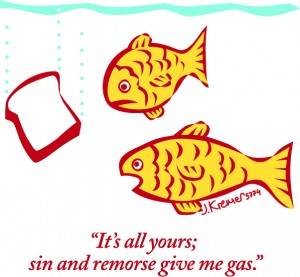This Friday night we celebrate a very special Shabbat. Although each Shabbat is special, certain Shabbats are singled out for particular meaning in the Jewish calendar. There is Shabbat Shuvah, the Shabbat between Rosh Hashanah and Yom Kippur, Shabbat HaGadol, the Shabbat leading to Passover, Shabbat Shirah, the Shabbat where we sing of crossing the Reed Sea, to name but three of them. Friday, January 31st, we celebrate Shabbat Super Bowl.
Super Bowl Sunday is Feb 2nd 2014. Does God actually play a role in the Super bowl?
There is much debate in America as to whether God plays a role in the Super bowl. According to a new survey from the Public Religion Research Institute, “half of American Sports fans say they believe God or a supernatural force is at play in the games they watch.” This includes 26% of Americans who pray directly to God to help their team, 25% of Americans who believe their team is cursed and approximately 19% of Americans who believe God is involved in who wins the game. This raises some very interesting questions: What is the nature of the God you believe in?
How do we understand God? What role does God play in our lives?
If a disaster looms, do we thank God that we were spared from the hurricane (even though the guys that were nailed were not quite so lucky)? If we get sick, do we pray for God to make us well?
I believe the adage “there are no atheists in foxholes.” When your life is at stake, you grab on to anything that might be a lifeline. And foxholes are metaphoric as well as literal. Each of us will face trials and tribulations in our lives. It is then that we need something to hold onto, an anchor, a rock a something that says we will survive this, because regardless of whether we want it or not, misfortune will surely strike. We do not control the event, but we can control how we get through it and how we carry on after it is over.
So where and how do you find God?
As I sought to answer this question, I found some incredible, astounding and sobering statistics: The Department for Veteran’s Affairs reports than an estimated 48,000 veterans are homeless or at risk for becoming homeless. As of the end of last year, the number of non-fatal casualties from Afghanistan and Iraq surpassed the grim milestone of one million. Over 270,000 brain injuries have been diagnosed including traumatic brain injuries and Post Traumatic Stress Disorder. These are forbidding statistics. But there is an important point that is tragically lost in these statistics.
These are human beings who are suffering. They are not nameless things, but rather, they are people, people who feel sadness, pain and anguish. These are the people our prophets seek to protect when they call out to us. For far too long we have not felt a personal connection to these individual people. We have let the impersonal Government take care of the nameless masses. But it is for us, however, to look at them as our brothers and sisters, members of our American family. These are the distinct brave men and women like veteran ranger Sergeant First Class Cory Remsburg who appeared at the State of the Union Address earlier this week. Sergeant First Class Cory Remsburg served his country heroically with a valor and devotion that goes beyond the comprehension of most of us. And Cory Remsberg will spend the rest of his life dependent upon the love and support of all of us as he struggles to recover from devastating injuries.
We are taught, “Kol Yisrael arevim zeh bazeh.” We are all responsible for each other. This is the charge from our God to each and every one of us, that it is our sacred obligation to protect the vulnerable. We are commanded to feed the hungry, clothe the naked, shelter the homeless, and safeguard the widow and the orphan. It is here that we can find our God. For when we reach out to another, God is in that sacred space.
We learn about God’s sacred space in this week’s Torah portion Terumah. Here are the intricate details of building God’s house in the Midbar. The Mishkan is a moveable structure that the Israelites carry with them on their travels through the Wilderness. And if we take this passage as metaphor, essentially we learn in this parshah that God is with us wherever we may go. God Himself teaches us one of the core messages of Torah. As we are taught to build the Ark of the Covenant, two Cherubim are placed on top of the Ark with facing each other with arms outstretched. And God then says, “Here I will meet with you.” (Ex 25:22). That, in other words, God is found in the place we come into relationship with each other.
So let me return to the original question, “Does God influence the Super Bowl?” “God Knows,” but I do not. I am sure that there is a facet of God that enjoys a good contest, revels in positive human competition, and even enjoys a good burger. Should we invite Him to the Tailgating party? Would that unduly influence the Almighty or perhaps might He just enjoy the sweet savor of something hot off the grill?
But the real question remains: “How can you find God’s presence in your daily life?” And the answer to that question might be that maybe God does indeed have the capacity to influence everything in our lives if only we reached out to others and opened ourselves up to the possibility.
Shabbat Shalom

